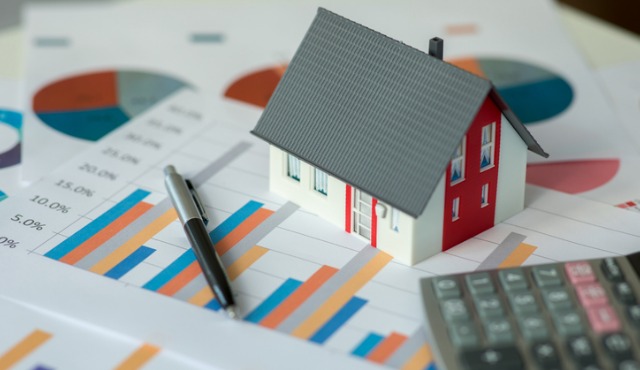How to Reduce Tax Expenditures During a Home Sale

Are you selling your house? You'll need to pay taxes on the property, but with some additional knowledge, you might be able to avoid a huge tax bill in the future. The goal of selling your home, beyond ensuring that you can move quickly as possible, is to ensure you get the most money you can. However, because of this, the IRS will have dollar signs in their eyes and will also want a piece of that pie.
This is because capital gains on real estate are sometimes taxable, so it's important to understand how you can minimize or completely avoid paying tax on a property you’re about to sell. Here's how real estate capital gains taxes work so you can potentially save some of your hard-earned money:
How Capital Gains Taxes Work
Capital gains taxes are a tax on the money you have made from an investment. When capital assets such as a home or other real estate are sold, your gains become realized. Whenever you sell, it becomes taxable income.
Capital gains are assessed on how much you originally paid for the asset, your basis and what you actually sell it for. Capital gains can apply to all sorts of things including investments, bonds, stocks and any tangible asset you might own such as a car or, in this case, a piece of real estate.
There Are Capital Gains Deductions You Need to Understand
One of the tax benefits of homeownership is having a capital gains tax deduction that can offset any gains you might have. The IRS allows you to exclude a certain amount of profit that occurs from selling your primary residence. The capital gains exclusion is currently as follows:
-
A $250,000 exclusion of capital gains on a piece of real estate if you’re currently single.
-
A $500,000 exclusion of capital gains on a piece of real estate if you’re married or you’re filing jointly.
Not clear enough? Here's an example:
If you bought a home 10 years ago for $500,000 and you sold it right now for $1,200,000 you’d be making $700,000. If you were currently single at the time of selling, then you would be required to pay tax on it; minus $250,000 of the final figure stated above; so $450,000 would be taxable by the IRS.
However, if you were married at the time of selling, you would only be taxed on $200,000 of that final total, since you’re able to legally exclude $500,000 of the final sum.
The Negatives of Capital Gains on Real Estate Property
The exclusion stuff sounded pretty awesome, didn't it? Even if you were single, you could still avoid being taxed on a huge chunk of your capital gains. However, one of the downsides is that this could all be thrown out if any of these factors are true—leaving you with having to pay tax on all of your gains:
-
The property wasn't your principal (main) residence.
-
You owned the home for less than two years in the five year period before you officially sold it.
-
You didn't live in the house for at least two years in the five year period before you sold the property; there are some exceptions to this rule: disabled, military and foreign service or intelligence people can break this rule.
-
You’ve already claimed the $250,000 or $500,00 exclusion on a home previous in the past two years.
-
The house is owned due to a like-kind exchange.
-
You are currently subject to emigration tax.
If you think you fall under any of these rules, don’t panic. The next step is to figure out what capital gains tax rate applies to you.
Short Term Capital Gains Works This Way
Short-term capital gains apply when you have owned the asset for less than one year. This rate will then be equal to your regular income tax rate (or tax bracket). There are, of course, many tax brackets, so in order to calculate what you'll pay in taxes, you'll have to apply whatever bracket you fall into.
How Do Long-Term Capital Gains Work?
Long-term capital gains apply when you owned the asset for more than a year. This varies depending on a lot of things—some people pay a 0% tax rate while others can pay anything up to 20%—it all really depends on the current filing status and your income.
For example, a single taxpayer will pay 0% up to $40,400 in income. The rate jumps to 15% with an income between $40,401-$445,850. An income over $445,850 will jump the rate up to 20%. For married couples filing jointly, you will pay 0% up to $80,800. The rate goes to 15% with income levels between $80,801 and $501,600, and then to 20% with income over $501,600.
How to Avoid Paying Capital Gains Taxes on Your Property
-
Live in your house for at least two out of the next five years—they don't need to be consecutive years.
-
Investigate whether you can qualify for an exception.
-
Make sure you keep receipts of any capital improvements you have done to your home, as these can contribute towards your tax basis.
-
Don't forget any costs associated with the sale of your home, such as real estate commissions, as these can also impact your tax liability. If you are serving or have served in the military, your moving and storage expenses could be tax-deductible as well.
Whenever you have any questions about your tax liability, it is worth consulting a tax professional for advice. Everyone's circumstances are uniquely different. The tax code is constantly in flux, so you'll want to make sure you follow the law and get any appropriate deductions you're allowed.

